Civil Liberties, Climate Change, Human Rights, Human Trafficking, Prison Industry, Supreme Court
Podcast: Play in new window | Download
Update:
- Climate Activists Win in Minnesota Supreme Court, Setting Stage for Historic Climate Necessity Trial
—-

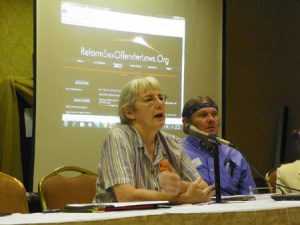
NARSOL: Sex Offender Laws
Tayler Boncal was a 22-year-old student teacher and track coach at Conrad High School in West Hartford. She was arrested this past February and charged with three counts of second-degree sexual assault for having a consensual relationship with an 18-year-old male student. The young man initiated the relationship and was not a member of the track team. If convicted of sexual assault Ms. Boncal will have to register as a sex offender. Doing so will most likely alter the course of her life.
NARSOL, a nationally recognized non-profit dedicated to restoring the civil and constitutional rights of registered sex offenders, believes that criminal charges in this instance are unwarranted. The group contends that any law that allows an adult to be criminally prosecuted for having a consensual relationship with another adult should be abolished.
Guest – Brenda Jones, has been involved in this cause since September of 2009. She has been executive director of state affiliate FAIR (Families Advocating Intelligent Registries) since its inception in 2010 and in 2012 became the first executive director of NARSOL.
—-
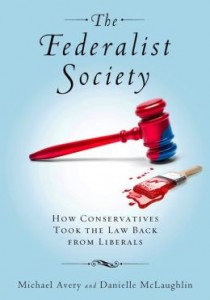
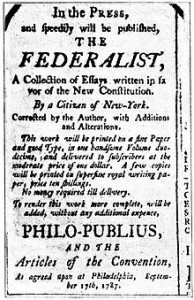
The Federalist Society: Shifting the U.S. Legal Landscape to the Right
With the recent nomination of conservative attorney Brett Kavanaugh to replace Justice Anthony Kennedy, the United States Supreme Court will have a majority of authoritarian anti-democratic jurists who support a powerful executive. At the same time, Donald Trump has wasted no time in appointing more conservatives to federal judgeships.
More and more we’re hearing that the once little-known Federalist Society is behind these appointments. But it’s now a new development. The Society was formed at Yale University in 1981, and has steadily and quietly been placing its lawyer members in positions of power in the government and judiciary.
In their 2013 book, The Federalist Society: How Conservatives Took the Law Back from Liberals, attorneys Michael Avery and Danielle McLaughlin track the movements of this small group of conservative law students and lawyers and their increasing influence. The Federalist Society has lawyer chapters in every major city in the United States and student chapters in every accredited law school. Members include economic conservatives, social conservatives, Christian conservatives, and libertarians. One of the things that has made the Federalist Society so very effective is their big picture agenda. While they may have differences of opinion on a range of issues, they have successfully put those aside to advance a far-reaching, long-lasting, and broad conservative agenda. Their agenda is chipping away at social gains made since the 1930s. Medicare and Medicaid and Social Security are on the block. So is Roe v. Wage. Citizen United, holding that corporations are persons and money is free speech, and the union-breaking Janus decision are just the beginning. Other attacks on democracy include voter suppression, voter ID laws, and gerrymandering.
Guest – Attorney Michael Avery, the former president of the National Lawyers Guild, and is an expert in the areas of constitutional law and police misconduct.
————-

————-
Civil Liberties, Human Rights, Human Trafficking, Supreme Court, Truth to Power, War Resister
Podcast: Play in new window | Download


U.S. Quits UN Human Rights Body
Last week the United States of America became the first country to voluntarily quit the United Nations 47 member main human rights body, primarily over Washington’s claim that the Human Rights Council is biased against Israel.
This was the Trump administration‘s latest snub of the international community. The Human Rights Council is tasked with spotlighting and approving investigations of suspected rights abuses. Never before has a member dropped out voluntarily. Diplomats and activists say that US ambassador Nikki Haley was the driving force behind the decision.
Efforts by the United Nations ambassador Haley to end or water down the routine scrutiny of Israel has failed in recent months at the United Nations General Assembly in New York. The Human Rights Council addresses and array of concerns including discrimination, freedom of expression, the rights of women, LGBT people, and people with disabilities.
Haley declared that “We are withdrawing from the United Nations Human Rights Council, an organization which is not worthy of its name.“
Guest – Phyllis Bennis is a fellow of the Institute for Policy Studies, where she works on anti-war, US foreign policy and Palestinian rights issues. She has worked as an informal adviser to several key UN officials on Palestinian issues. Her books including Calling the Shots: How Washington Dominates Today’s UN, and Understanding the Palestinian-Israeli Conflict.
—-
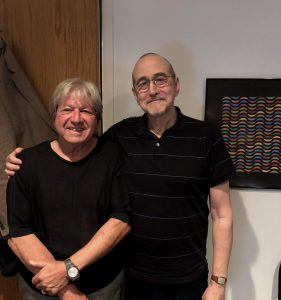
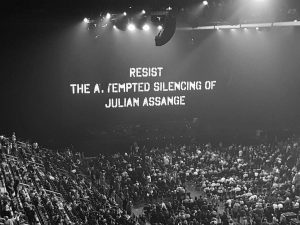
Mark Crispin Miller – Julian Assange, Voter Fraud and Fake News
WikiLeaks founder the truth telling publisher Julian Assange is in escalating danger of being sent from England to America where he would likely be tried for espionage, a crime that carries the death penalty.
Assange and WikiLeaks have revealed American war crimes in the middle east, CIA global machinations , and the work of Clinton Democrats in preventing the popular Bernie Sanders from heading up the party ticket.
Assange is presently holed up in the Ecuadorian embassy in London where he was granted political asylum six years ago by past leftist president Rafael Correa. But now, with the change of presidents in Ecuador, Assange has been cut off from the outside world. He has no phone, no computer, and no visitors.
The fresh offensive against him occurred the day after American General Joseph DiSalvo, the head of the US Southern Command, the Pentagon’s arm in Latin America, visited the new right wing Ecuadorian President Lenin Moreno. Moreno has said that Assange is “an inherited problem” and is seeking s better relationship with the United States government, to whom he has already granted a military base.
Guest – Mark Crispin Miller who is a professor of media studies at New York University. Professor Miller has frequently spoken about media propaganda, the engineering of consent for empire, fake news, and the destruction of the independent press. He has been awarded a Guggenheim Fellowship for the humanities and is a vigorous defender of Julian Assange and WikiLeaks.
—————————–

—————————–
Civil Liberties, Criminalizing Dissent, Human Rights, Human Trafficking, Political Prisoner, Prison Industry
Podcast: Play in new window | Download
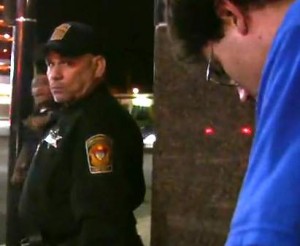
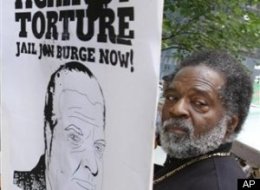
Kisela vs Hughes: Qualified Immunity
All too often government officials including law-enforcement agencies get away with gross abuses of power because they invoke the doctrine of qualified immunity. This is a doctrine which protects police who kill civilians.
In the United States, 2,934 civilians were shot and killed by police since 2015. That is nearly 1000 people a year. In most European countries the number of people killed by the police is zero.
The doctrine of qualified immunity prevents government agents from being held personally responsible for constitutional violations unless the violation was of clearly established law. This is something nearly impossible to prove.
A Supreme Court decision two weeks ago in the Kisela vs Hughes case decided against the plaintiff victim of police abuse by a 7 to 2 majority two liberal justices Sotomayor and Ginsberg dissented. They opined that the majority of supreme court judges have established what they called an absolute shield protecting police from what they labeled palpably unreasonable action that will go unpunished.
Guest – Attorney G.Flint Taylor, a graduate of Brown University and Northwestern Law School, is a founding partner of the People’s Law Office in Chicago, an office which has been dedicated to litigating civil rights, police violence, government misconduct, and death penalty cases for more than 40 years.
Guest – Attorney Ben Elson is a partner at the People’s Law Office. His practice focuses on representing victims of police and other governmental misconduct in civil rights cases, including people who have been wrongfully convicted, subjected to police brutality, and denied medical attention. He has obtained tens of millions of dollars in compensation for his clients through verdicts and settlements.
—-
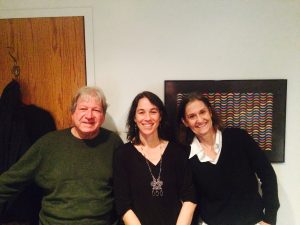
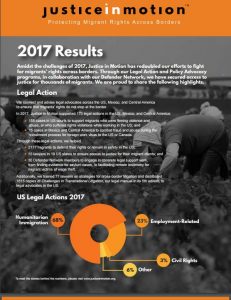
Lawyers You’ll Like: Cathleen Caron – Justice In Motion
Attorneys who represent migrant workers face a host of challenges in transnational employment litigation. Some of these challenges range from not being able to obtain a visa for clients posed to begin trial but are physically back at home in Guatemala or another country, and cannot return to testify. Or clients may be entitled to past wages but their US lawyers are unable to find them once they have left the States.
For some lawyers, it’s cost-prohibitive to keep in contact or to track down clients when the case goes to trial and forgo representing them entirely.
This is where the organization Justice in Motion comes in. Their unique cross-borer model helps advocates and migrants overcome these barriers to what they call portable justice. Their mission is to ensure that migrants who suffered exploitation abroad are able to access justice even if they have returned to their home countries. They connect advocates and defenders, and support the development of cases to ensure that transnational litigation is working effectively and smoothly on behalf of migrants. They play a pivotal role in persuading attorneys to work on cases with a transnational dimension, and to not forgo them because of legal or logistical obstacles. This has led to a significant increase in the number of advocates in the region providing transnational legal services to migrants. Justice In Motion 2017 Brochure
Guest – Attorney Cathleen Caron, National Lawyers Guild member, Cathleen is the founding executive director of Justice in Motion, and she’s also one of our Lawyers You’ll Like. Cathleen has more than twenty years of human rights experience in the United States and abroad. Prior to launching Justice in Motion (formerly known as Global Workers Justice Alliance), she was in East Timor where she directed a national needs assessment of the human trafficking situation for the Alola Foundation, chaired by East Timor’s First Lady.
—————

—————
Civil Liberties, Criminalizing Dissent, Human Rights, Human Trafficking, Supreme Court, Torture, Truth to Power, War Resister
Podcast: Play in new window | Download
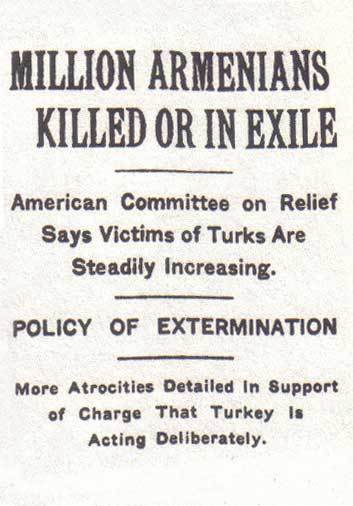
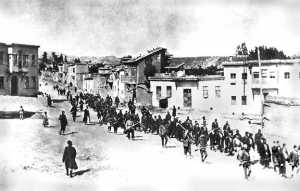
Speaking In Turkish: Denying the Armenian Genocide
Around the world, April 24 marks the observance of the Armenian Genocide. On that day in 1915 the Interior Minister of the Ottoman Empire ordered the arrest and hangings of Armenian intellectuals and community leaders in Constantinople. It was the beginning of a systematic and well-documented plan to eliminate the Armenians, who were Christian, and who had been under Ottoman rule and treated as second class citizens since the 15th century.
The unspeakable and gruesome nature of the killings—beheadings of groups of babies, dismemberments, mass burnings, mass drownings, use of toxic gas, lethal injections of morphine or injections with the blood of typhoid fever patients—render oral histories particularly difficult for survivors of the victims.
Why did this happen? Despite being deemed inferior to Turkish Muslims, the Armenian community had attained a prestigious position in the Ottoman Empire and the central authorities there grew apprehensive of their power and longing for a homeland. The concerted plan of deportation and extermination was effected, in large part, because World War I demanded the involvement and concern of potential allied countries. As the writer Grigoris Balakian wrote, the war provided the Turkish government “their sole opportunity, one unprecedented” to exploit the chaos of war in order to carry out their extermination plan.
As Armenians escaped to several countries, including the United States, a number came to New Britain, Connecticut in 1892 to work in the factories of what was then known as the hardware capital of the world. By 1940 nearly 3,000 Armenians lived there in a tight-knit community.
Pope Frances calls it a duty not to forget “the senseless slaughter” of an estimated one and a half million Armenians by the Ottoman Turks from 1915 to 1923. “Concealing or denying evil is like allowing a wound to keep bleeding without bandaging it,” the Pope said just two weeks before the 100th anniversary of the systematic implementation of a plan to exterminate the Armenian race.
Special thanks to Jennie Garabedian, Arthur Sheverdian, Ruth Swisher, Harry Mazadoorian, and Roxie Maljanian. Produced and written by Heidi Boghosian and Geoff Brady.
———————————————

Academic Freedom, CIA Sponsored Terror, Civil Liberties, Human Rights, Human Trafficking, NSA Spying, Political Prisoner, Surveillance, Targeting Muslims, Truth to Power
Podcast: Play in new window | Download
Law and Disorder Editorials:
- Jared Kushner Middle East Policy Advisor
—-
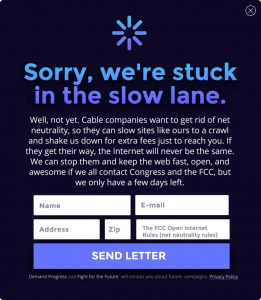

Free Press: New FCC Rules On Net Neutrality
The Federal Communications Commission recently released a plan to do away with landmark regulations ensuring equal access to the Internet. They pave the way for Internet service companies to charge the public higher rates to see certain content and to even deny access to some websites.
The proposal was made by the FCC chairman, Ajit Pai, an opponent to regulation in general. Pai is the former Associate General Counsel for Verizon Communications, Inc.
The proposal is expected to be approved in mid-December. In his first year Pai, who was appointed by Donald Trump, has already eliminated numerous regulations. The agency has stripped down rules governing TV broadcasters, newspapers and telecom companies designed to protect the public interest. In addition to the net neutrality rollback, the chairman announced a plan to eliminate a rule limiting any corporation from controlling broadcasts that can reach more than 39 percent of American homes.
In a broad brushstroke, the new proposal repeals rules put in place by the Obama administration that prohibit high-speed internet service providers, or I.S.P.s, from slowing down or even stopping the delivery of websites. The Obama rules prevent companies from charging customers extra fees for high-quality streaming and other services. These former rules were drafted to preserve the principle commonly known as “net neutrality” and to prevent practices that would created tiers of access to the Internet.
The plan to repeal existing rules that were passed in 2015 would reverse a hallmark decision by the agency to consider broadband a public utility, as essential to modern lives as phones and electricity. The earlier decision created the legal foundation for the current rules and underscored the importance of high-speed internet service.
Guest – Attorney Gaurav Laroia, Policy Counsel at Free Press. Before joining Free Press, he worked at the Government Accountability Project protecting the rights of national security whistleblowers.
—-

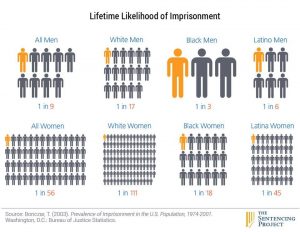
The Sentencing Project
The United States of America imprisons more of its citizens both in absolute numbers and as a percentage of the population than any other country in the world. Only China comes close. On any given day 2,300,000 Americans are in jail or prison, 70% of them are non-white.
Former Alabama senator Jefferson Beauregard Sessions wants these numbers to rise. He has instructed federal prosecutors to prosecute people for the most serious possible crime and to demand the longest possible sentence.
In the last 30 years the number of people in jail and in prison have skyrocketed by factor of five. Prosecutors are increasingly demanding life sentences without the possibility of parole. Judges have lost their discretion with the implementation of maximum minimum sentencing. The long-term impact of mass incarceration has been devastating, especially to black communities.
Attorney General Sessions has stated that there is “a dangerous permanent rise”
in violent crime, despite FBI data showing a sharp decline in the last 20 years. He has falsely charged that crime increases have been caused by immigrants and that prosecutorial policy under Obama caused crime to increase.
Guest – Marc Mauer, the Executive Director of the Sentencing Project and a central figure in the justice reform movement. The Sentencing Project is a Washington DC based research and advocacy group working to reduce the use of incarceration in the United States and to address racial disparities in the criminal justice system.
Follow Heidi Boghosian on Twitter – @HeidiBoghosian
Civil Liberties, Human Rights, Human Trafficking, NSA Spying
Podcast: Play in new window | Download


U.S. Employees Agree To Be Microchipped
In 2003, 500 of the largest corporations planned to quietly replace universal product codes or barcodes with tiny Radio Frequency IDentifcation (RFID) microchips, creating the Electronic Product Code or EPC. RFID is a technology that tracks items silently and invisibly by radio waves. Over the years, we’ve reported about how RFID chips embedded in consumer products might be used to track people through the things they wear and carry since radio waves travel right through solid objects and can communicate with reading devices that can be hidden almost anywhere.
Corporations have already started embedding RFID microchips into consumer products for many reasons including shipping, inventory and marketing. Some companies have also been very interested in embedding RFID microchips into human flesh.
Years ago, Applied Digital Solutions tried to sell its “Verichip” human implant as a way to store medical information in people–and even to track senior citizens and corpses. Concerned citizens decried the privacy and security issues, forcing name changes and even the selling off of its human chipping business.
Microchip companies with new names and marketing angles are at it again. Recently, fifty employees with the snack kiosk company Three Square Market in Wisconsin agreed to have a microchip embedded into their flesh.
Guest – Liz McIntyre, a consumer privacy expert who is coauthor of a series of books about the societal implications of microchip tracking technology, including Spychips: How Major Corporations and Government Plan to Track your Every Purchase and Watch Your Every Move. She also promotes privacy as a consultant with the search engine StartPage.com
—-
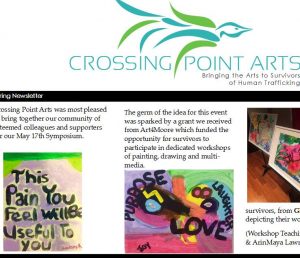

PTSD Therapy For Human Trafficking Survivors
Nearly all survivors of human trafficking are affected by post traumatic stress syndrome and have difficulty assimilating back into the society. Most have managed to silently cope with the emotional and physical trauma of their past. The New York-based organization Crossing Point Arts was created help survivors heal through the arts, including singing, creative art and poetry.
The group provides free art workshops supervised by Creative Arts Therapists. The strategy is based on providing learn long-term coping mechanisms and better manage their PTSD symptoms.
Crossing Point Arts has reached nearly 2,000 survivors in art workshops. The workshops are held on the premises of local anti-trafficking agencies as part of a comprehensive program for survivors, which includes housing, legal and medical assistance, traditional therapy, educational guidance and a range of emotional support.
Guest – Anne Pollack is the Crossing Point Arts founder and executive director. Anne is a musician, visual artist, writer, student of dance and an activist. YourFluteWorks
—————————————————























